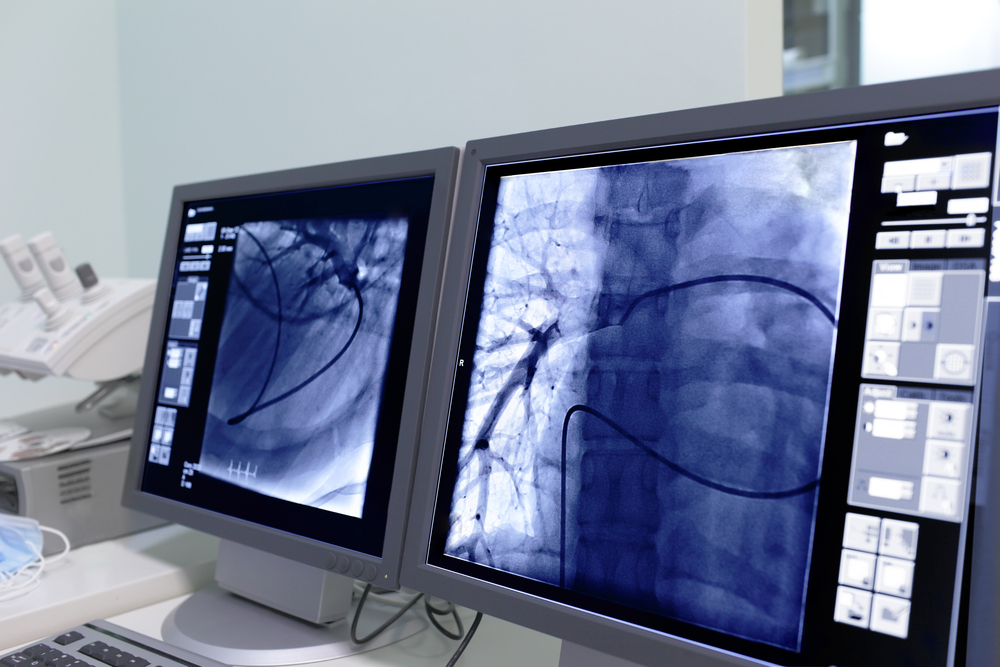Study developing AI to spot lung cancer risk from patient data

Researchers are developing artificial intelligence which they hope will help to identify patients most at risk of lung cancer before symptoms have even appeared.
A team from Nottingham Trent University and Nottingham University Hospitals NHS Trust aims to create an AI-driven model which can autonomously piece together subtle clues and signs in patients’ data to identify those at risk so that they can be investigated further.
There are about 48,500 new cases of lung cancer in the UK alone each year with almost 35,000 people dying from the disease.
The team wants to address the current challenge of European health systems manually identifying people at risk of certain diseases and also help to reduce the financial burden by ensuring services are used by those who need them the most.
It will involve developing a system to recognise factors which might make an individual high risk and then creating ‘synthetic’ data in order to train it to pick up even the weakest signals that there could be an issue.
The aim is to help save lives by identifying people before the disease becomes symptomatic because that can be too late for patients with lung cancer.
The Nottingham team are the UK partners in PHASE-IV-AI, a much larger €7.6m project funded by the European Union’s Horizon Europe research and innovation program.
The project involves 20 partners from ten European countries and aims to unlock the full potential of AI and data analytics in health care in a secure and privacy-compliant way.
As well as lung cancer, the developments of PHASE-IV-AI project will also be validated by other partners in prostate cancer and ischemic stroke. Lung cancer and prostate cancer are among the top three priorities in tackling cancer in Europe, while neurodegenerative diseases are one of the most relevant issues with the EU’s ageing population.
If successful, it is hoped that the Nottingham team’s model could be trained to identify risk for other serious diseases and rolled out to hospitals and organisations across Europe willing to utilise AI-driven diagnostics.
It is thought that AI can enable real innovations in health care, and that AI systems which can process vast amounts of data quickly and in detail can be harnessed as a tool for preventative health care and clinical decision-making.
Despite this, the way in which information is currently stored across European countries and the limited access to health data can form a barrier to innovation, as developing trustworthy and responsible AI systems often requires large datasets for training and validation.
“The hope is that we could develop an AI-driven model for hospitals which they can then utilise and run to help find those most at risk,” said Dr Mufti Mahmud, an Associate Professor of Cognitive Computing in Nottingham Trent University’s School of Science and Technology.
He said: “Countries have huge amounts of clinical practice data, and we want to understand how we might harness this to identify the right people, so they can be invited for more focused diagnostics. We need the system to be able to find people before they start showing symptoms, and ultimately to help save lives.”
“Health care data storing is very sensitive, very private, so by developing synthetic data we can train the model to function responsibly and to provide the reasons why it selected an individual.”
Nottingham University Hospitals NHS Trust lung cancer consultant Professor David Baldwin said: “Identifying the right people for cancer screening is vital to ensure that the most people benefit whilst not harming people who have a low risk of developing lung cancer.
“AI offers the opportunity to improve the way we target screening programmes to make them more clinically and cost effective. AI is also changing practice in many other areas of lung cancer care. AI tools can help reduce the workload of specialists like radiographers and radiologists, as well as treatment costs, and improve outcomes for patients.”